TorrentFreak Email Update |
| Lawrence Lessig Wins Damages For Bogus YouTube Takedown Posted: 28 Feb 2014 02:05 AM PST
As a fair use advocate he seems a most unlikely adversary to quarrel with on those grounds. Nevertheless, that was exactly the path chosen by Australian music label Liberation Music in 2013. The story began in June 2010 when Lessig delivered the keynote address at a Creative Commons conference in South Korea. The lecture, discussing cultural and technological innovation, included several clips from amateur music videos, some of them depicting people dancing to a song called “Lisztomania” by the band Phoenix. The “Lisztomania” craze had developed when young people all around the world latched on to a video created by YouTube “avoidant consumer” and used the Internet and technology to develop and distribute their own derivatives. In his lecture, Lessig described the phenomenon as the latest iteration in the classic “call and response” tradition of communication. In June 2013 Lessig’s video, which necessarily used snippets of the Lisztomania track, was uploaded to YouTube. On the last day of that month Lessig received a notice from YouTube warning him that the video had been blocked after it was deemed to contain content from Viacom. Liberation Music, the label behind the Phoenix track, then issued a DMCA notice and caused YouTube to shut down the video. Lessig was subsequently warned by YouTube that further copyright breaches could lead to his account being closed down. In response Lessig submitted a counter-notice but was informed by Liberation Music that they would “commence legal proceedings in the United States District Court for the District of Massachusetts … for copyright infringement" if Lessig didn’t withdraw his notice. While Lessig did retract his counter-notice, in August 2013 and with support from the EFF he sued Liberation Music, asserting his right to use the music clip under the fair use doctrine. Liberation acted in bad faith when it sent the takedown notice, Lessig’s lawsuit said, and “knowingly and materially” misrepresented Lessig’s video as infringing copyright.
Liberation will pay Lessig an undisclosed sum for the damages it caused with the wrongful takedown. The money will go towards supporting the EFF’s work on open access and the label will also “adopt new policies” that respect fair use. “Liberation Music is pleased to amicably resolve its dispute with Professor Lessig. Liberation Music agrees that Professor Lessig’s use of the Phoenix song ‘Lisztomania’ was both fair use under US law and fair dealing under Australian law,” the label stated in the settlement agreement. “Liberation Music will amend its copyright and YouTube policy to ensure that mistakes like this will not happen again. Liberation Music is committed to a new copyright policy that protects its valid copyright interests and respects fair use and dealing.” When Liberation took on Lessig they clearly picked the wrong person, but the professor hopes that the label’s mistakes will help others understand that fair use has its place, but copyright abuse does not. “Too often, copyright is used as an excuse to silence legitimate speech,” Lessig said in a statement. “I’ve been fighting against that kind of abuse for many years, and I knew I had to stand up for fair use here as well. Hopefully this lawsuit and this settlement will send a message to copyright owners to adopt fair takedown practices — or face the consequences.” Source: TorrentFreak, for the latest info on copyright, file-sharing and VPN services. |
| Bitcoin Donations Now Integrated into BitTorrent Client Posted: 27 Feb 2014 10:41 AM PST
The possibilities are intriguing, from artists being able to seed their own content to the public and getting paid directly by fans, to curators of already free content being rewarded for their distribution efforts. In file-sharing circles there has been a traditional reliance upon PayPal transactions to show appreciation, but with the rise of alternative cryptocurrencies such as Bitcoin, new avenues have opened up. Many sites, The Pirate Bay included, accept donations in Bitcoin and Litecoin, and some artists have adopted the currencies for fans who want to chip-in. Despite these developments there remains a disconnect between downloading content and a subsequent donation, meaning that split-second urges to hand over cash in appreciation often have time to cool. That, however, is about to change. Following their teaser in December 2013, a brand new build of FrostWire’s BitTorrent client (Windows, Mac, Linux) now includes torrent creation supporting not only Bitcoin, Litecoin, Dogecoin and PayPal donations, but also the selection of appropriate Creative Commons licenses for delivered content. We’ll bring you comment from the FrostWire team in just a moment, but first let’s look at the simple process from the creator’s perspective. After loading up FrostWire one simply goes about creating a .torrent file in the usual way, by selecting the tracking options and pointing it to the relevant content on the host computer. If the torrent creator would then like to give fans the option to donate, two extra screens appear. The first allows the user to select an appropriate Creative Commons license under which to spread the content.
The next screen configures payment/tips/donation options, whether Bitcoin, Litecoin, Dogecoin, PayPal, or a mix-and-match between all four.
Obviously the creator/distributor will now need to seed, at least until plenty of other people download and start sharing the content. For the downloader it’s simply a case of installing the correct version of FrostWire (this is a must at the moment until other clients implement the feature) and clicking on a donation-enabled .torrent file. FrostWire have made a couple available for testing, one of which is a track by FriCtrl labeled Bitcoin_Revolution. Downloading that reveals a box next to the torrent title labeled “Tips/Donations”, with Bitcoin’s logo highlighted. Hovering over reveals the text shown below.
Once an option is clicked, FrostWire launches a payment process which opens a web page containing the target wallet’s cryptocurrency address in QR, hyperlink, and text form.
Of course, there will be those who immediately see possibilities for monetizing piracy. But, speaking with TorrentFreak, FrostWire’s Angel Leon says their objectives actually run counter to that. “We believe piracy is best fought by giving consumers the options of getting legal content, and we want to build solutions that use this technology to empower content creators no matter how big or small they are. We want them to try BitTorrent as an alternative, an additional channel. We think it will be easier to convince more and more artists to join us with the new possibilities,” Leon told TF. “Putting it bluntly, Bitcoin and BitTorrent integration give us the tools to create the P2P equivalents of iTunes and Netflix, which are centralized venues which work great for big content but not so much for the little guys who have to jump through many hoops to get in.” Leon says that the end result could be a decentralized media store “owned by nobody and available to all,” one which allows consumers to deal directly with content creators “without the corporate interests, censorship issues and draconian rules that make it hard for the little guy to publish his work.” The possibilities don’t always have to be commercial either. “Just imagine a BitTorrent bundle powered by this technology in which Bono from U2 shares free songs or a free video documentary to raise awareness and collect Bitcoin donations for the (Red) foundation to further the fight against HIV worldwide,” the FrostWire team teases. Further information, including the experimental builds and info on how to activate .torrent-enabled donations, can be found here. Photo: Steve Garfield Source: TorrentFreak, for the latest info on copyright, file-sharing and VPN services. |
| You are subscribed to email updates from TorrentFreak To stop receiving these emails, you may unsubscribe now. | Email delivery powered by Google |
| Google Inc., 20 West Kinzie, Chicago IL USA 60610 | |


 While content distributed via BitTorrent is almost always free (a situation most users would like to keep intact) there has long been a desire to find a straightforward mechanism for optional donations.
While content distributed via BitTorrent is almost always free (a situation most users would like to keep intact) there has long been a desire to find a straightforward mechanism for optional donations.



 It’s been more than five years since the RIAA stopped its controversial legal campaign against individuals, an effort which resulted in thousands of private settlements with accused file-sharers.
It’s been more than five years since the RIAA stopped its controversial legal campaign against individuals, an effort which resulted in thousands of private settlements with accused file-sharers. 
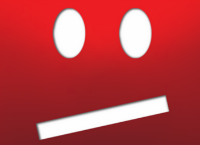

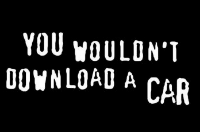 February last year the MPAA, RIAA and five major Internet providers in the United States launched their
February last year the MPAA, RIAA and five major Internet providers in the United States launched their 
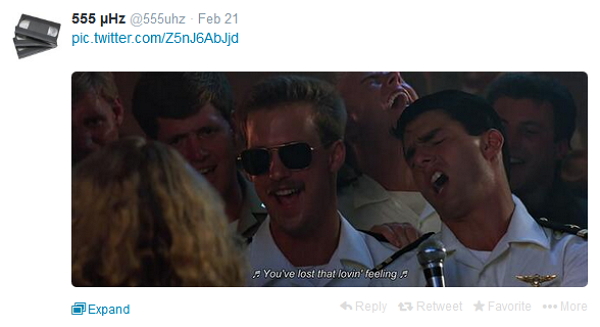
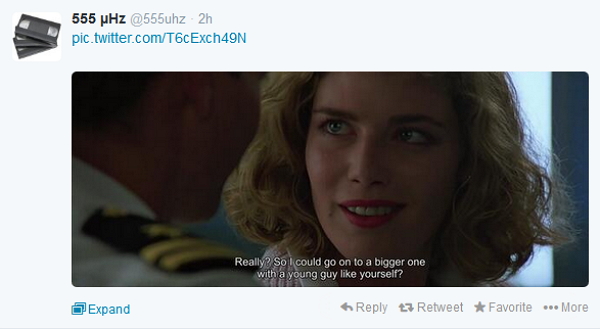
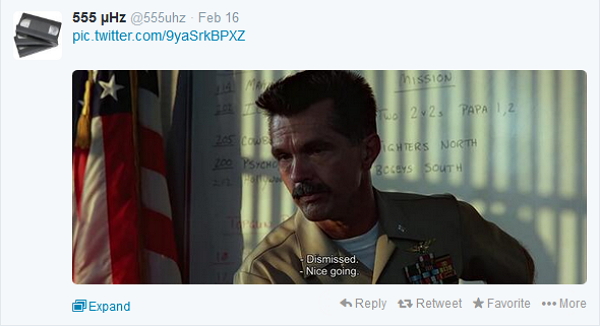
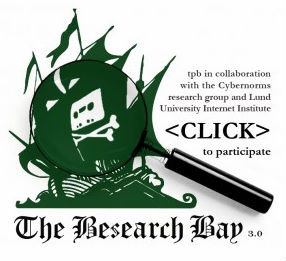
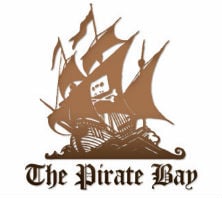 Over the past few years the entertainment industries have repeatedly asked Google to step up its game when it comes to anti-piracy efforts.
Over the past few years the entertainment industries have repeatedly asked Google to step up its game when it comes to anti-piracy efforts.

 This week we have three newcomers in our chart.
This week we have three newcomers in our chart.